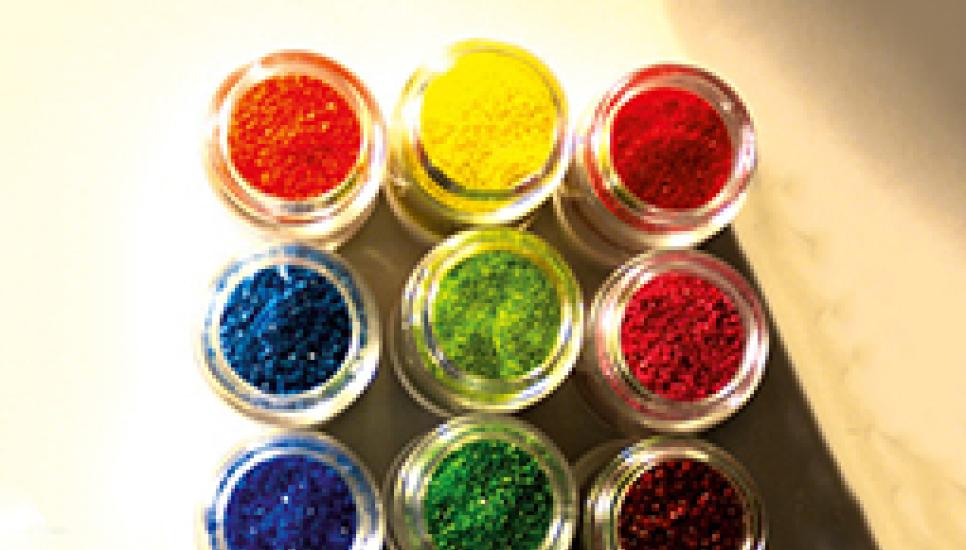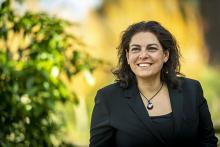Making scents: Benjamin Firmenich on engaging the next generation and impact investing

From perfume to mangroves, Benjamin Firmenich is a next gen with impact on his mind. Michael Finnigan spoke to him about doing good – both inside the eponymous family business and out
Crafting the perfect recipe has been the hallmark of Swiss flavour and fragrance manufacturer Firmenich for more than 120 years. Today its state-of-the-art laboratory in Geneva stands as a reminder of the family's recipe-making prowess. Inheriting this disposition is fourth-gen Benjamin Firmenich, who has put aside perfume in order to find a formula for engaging the next generation. A process, he says, is like catching lightning in a bottle.
“It's extremely important to keep the next generation engaged because family businesses grow at an exponential rate,” says the 35-year-old, who graduated with an MSc in environmental sciences from the Netherland's Wageningen University. “Just 40 years ago Firmenich only had five shareholders. By the time the next generation rolls around it'll have more than 40.”

Benjamin's desire to engage the next generation stems from the hope that they'll build a better world. On a more immediate level, he hopes to keep the next generation of the Firmenich family engaged with the family business from his seat on Firmenich's next-generation and talent committee, which is designed to help the younger generation develop skills and improve family unity. He tackles the issue through bespoke workshops, which cater to those aged 12 to 40 and include everything from a smells, flavours, and tastes workshop for the younger members to financial training for the older next gens. The most important event in the calendar is an annual seminar in the countryside.
“One of the reasons we hold these next gen-only workshops is because we've noticed they sometimes find it difficult to contribute where the elder generation are involved. Having an activity weekend in the countryside with team-building exercises and seminars helps them to get to know each other better and to keep them engaged with the business,” he explains.

Benjamin and his two siblings have experienced the difficulties facing the next generation first hand, and have embarked on markedly different career paths as a result. His older brother Julien, 36, currently reports to the head of ingredients at Firmenich, and holds the second-most senior position within that department. His sister Yasmine, 45, trained as a lawyer and now runs a polo club with her husband, but retains some influence through her place on the board of the family holding company.
At the senior level, Benjamin's father, Pierre-Yves (picture below with his wife Sophie), was Firmenich's chief executive from 1999 to 2002 and helped increase turnover from CHF 600 million ($604 million) to CHF 2 billion, while his mother, Sophie, currently sits on the family's philanthropy committee. His cousin, Patrick, was chief executive of the company until 2015, at which point it was decided that they would appoint their first non-family chief executive, Gilbert Ghostine.

Firmenich was founded in 1895 in Geneva and is today the largest privately-run company in the fragrance and flavour market. It has more than 6,000 employees across 63 countries and a turnover of more than CHF 3 billion. The firm reported 7% growth in 2015.
While Benjamin is proud of the family business and the diverse range of relatives still involved, he says the spotlight should be shone on the next generation for their optimism around philanthropy, sustainability and impact investing. However he issues a warning: “There are a lot of next gens out there who are doing great things, but sometimes they are so busy going about their day-to-day business that they don't realise they could really inspire others. That's something I'd like to change.” Benjamin hopes to do that in part through his engagement with Nexus Network, a global movement to bridge communities of wealth and social entrepreneurship, which has hosted more than 20 summits across six continents.
Leaving a legacy
 The desire to leave lasting change has led Benjamin to pursue a career outside of the family business in impact investing – investing for both profit and social or environmental impact. Benjamin realised his life's passion after a trip to Indonesia, where he had taken part in a project to assess the economic value of mangroves in the region.
The desire to leave lasting change has led Benjamin to pursue a career outside of the family business in impact investing – investing for both profit and social or environmental impact. Benjamin realised his life's passion after a trip to Indonesia, where he had taken part in a project to assess the economic value of mangroves in the region.
Upon his return, the next gen had a chance meeting with another Swiss next gen, Cédric Lombard of private bank Lombard Odier. Seventh-generation Lombard was in the process of setting up an impact investment fund called Impact Finance, with the hope that would support companies having a positive impact on developing countries. He asked Benjamin to sign up as an intern.
To date the six-year-old company has invested more than $60 million in debt across 44 companies working in rural areas, with 50% of those loans already repaid. In total it has invested in 13 countries, mostly in Latin America and Western Europe. The Geneva-headquartered firm has delivered positive returns since autumn 2012.
 “I joined Impact Finance in 2010 as an intern, primarily because of my background in environmental science, ecosystem services, and system analysis,” Firmenich explains. “The idea was that I would join in order to build a tool that could be used to monitor the impact of our investment. I eventually started visiting companies and was trained to do financial due diligence. My main responsibility today is on fund-raising and investor relations.”
“I joined Impact Finance in 2010 as an intern, primarily because of my background in environmental science, ecosystem services, and system analysis,” Firmenich explains. “The idea was that I would join in order to build a tool that could be used to monitor the impact of our investment. I eventually started visiting companies and was trained to do financial due diligence. My main responsibility today is on fund-raising and investor relations.”
While the scope of his role has evolved, Firmenich succeeded in his task of creating an impact monitoring system. The end result is the Kharmax Impact Monitoring System, which, according to its website, uses the latest information technology to identify and monitor the economic, environmental, social, and corporate impact of investments. Why is measuring impact important? Firmenich says because it helps investors to credibly and consistently communicate the results of their investments.
 But it's not as easy as one might think. “Unfortunately there is not one magic number that will give you the performance of an investment in terms of impact,” Benjamin says, likening his system to a car's dashboard with its various displays. “There are a lot of different dimensions and you have to have your own interpretation of positive impact.” Measuring impact can be a subjective affair, Benjamin concedes.
But it's not as easy as one might think. “Unfortunately there is not one magic number that will give you the performance of an investment in terms of impact,” Benjamin says, likening his system to a car's dashboard with its various displays. “There are a lot of different dimensions and you have to have your own interpretation of positive impact.” Measuring impact can be a subjective affair, Benjamin concedes.
It was in Indonesia that he gained an insight into this subjective affair. “The project was run by Dutch NGO Wetlands International. They were looking to restore the ecosystems in Java by paying local inhabitants to replant mangroves. After five to 10 years the NGO wound down the development but the benefit was so clear and the local people began replanting mangroves themselves. If you compare the price of replanting mangroves – which provide habitats for fish and serve as a natural tsunami defence – to the price of flood defences, then you get one measurement for the impact of your project.”
Fast-forward to today and the next gen has to factor returns into his formula. Firmenich cites Colombian biofuel company Coindagro as a good example of an impact investment. “In Colombia and Latin America there is a problem with reused cooking oil,” Firmenich explains. “Instead of being discarded after its first use, there are individuals who will treat it to appear fresh and resell it for a cheaper price. This is extremely dangerous. Coindagro buys up this cooking oil and uses it to create biofuel, one of the cleanest energy types on the market. The benefit is that you extract the toxic cooking oil from the market and turn what is essentially waste into a useful, clean, and profitable product.”
Through these types of investment, Impact Finance aims to return three to 5% over a five-year period. In 2015 it entered its target range with returns of 3.4%.
Proof is in the pudding
The Firmenich family has been won over by impact investing. Shortly after Benjamin joined Impact Finance, he took the opportunity to present his work at a family gathering. While he was only offered moral support and kind words at first, soon after a number of his cousins and immediate family began investing in the fund. To date the Firmenich family is responsible for about half of the fund's growth. It goes to show how supporting the next generation – no matter their ambitions – can in time reap benefits for the family.
It was by no means the family's first foray into doing good. Since 1991 Firmenich has made a serious push into sustainable and philanthropic causes. That year it signed the International Chamber of Commerce Business Charter on Sustainable Development and 25-years later it remains committed to eco-friendly practices. Today the business is involved in a number of sustainability practices including the CDP Supplier Climate Performance Leadership Index, which comprises the world's top 121 suppliers in greenhouse gas emissions management. More recently it joined the board of the World Business Council for Sustainable Development, Sustainable Lifestyles Cluster.
Benjamin now advises on similar projects after being recently appointed to the sustainability advisory council. “Now I'm involved in the sustainability advisory council for the family business. This was a great achievement for me because non-family members made the decision. Firmenich produces an annual sustainability report that has been integral to the family business since the early years. It is produced by NGOs, consultants, professors, scholars, and the World Business Council for Sustainable Development. So I was honoured to be called to join that board, and I represent the family in that board.”
Bottling lightning

Firmenich's personal quest is to encourage the next generation to create a better tomorrow, whether that's through impact investing, philanthropy, or sustainability. “Family businesses are in the best position to achieve this goal as their long-term focus means that they have an opportunity to lead by example for generations,” he explains. “I also see an awareness and concern among Millennials, not only about what you eat, what you wear, what you drive, but also where you invest. We can no longer be solely concerned about the assets that we pass down.”
He continues: “I couldn't have achieved any of my goals without the support of the elder generation. So it's really important that they find the right approach to empower their children. That's the secret.” While the Firmenich family operates primarily in flavours and fragrances, with more than 2,000 patents in place, there's little doubt that Benjamin's recipe for engaging the next generation is a special blend.







